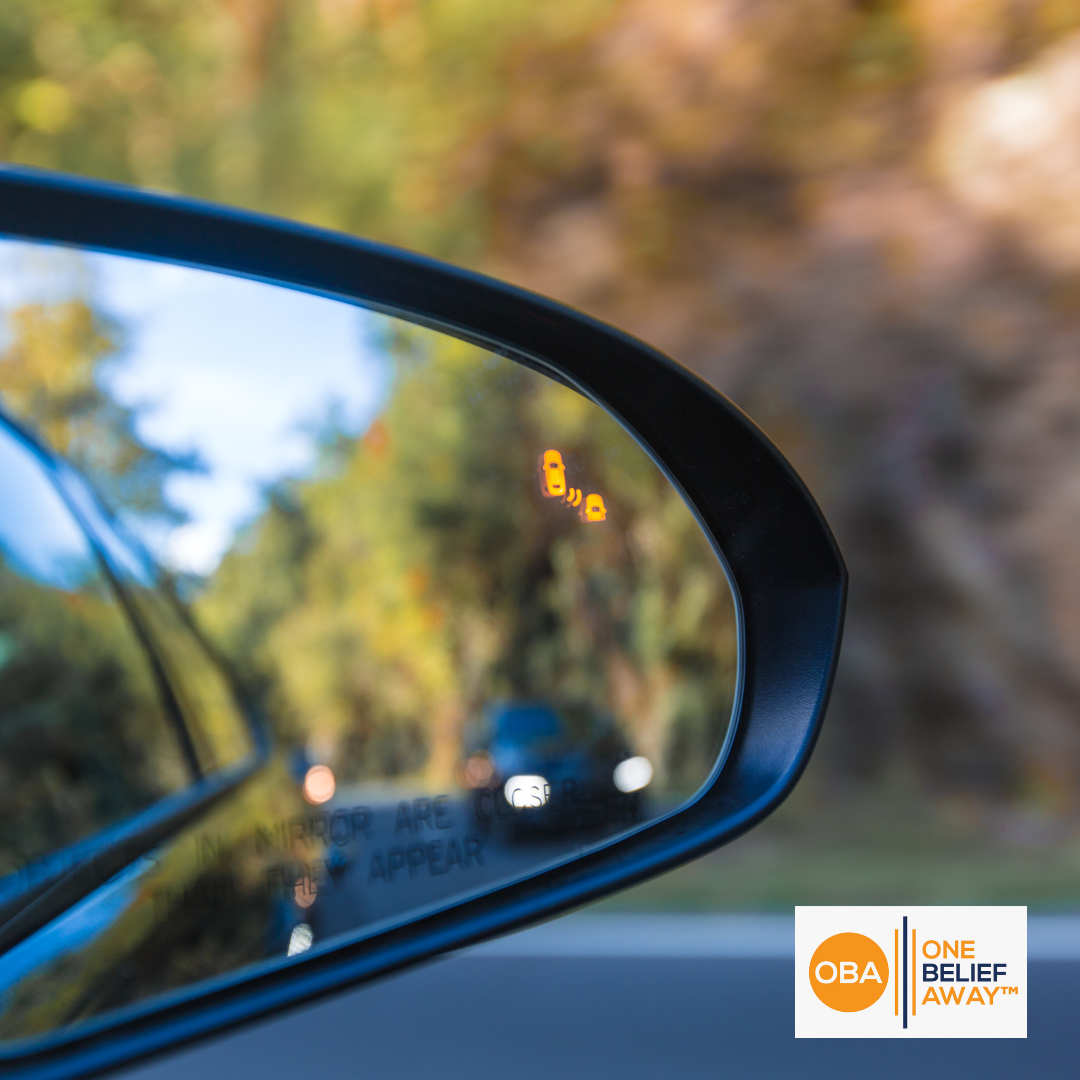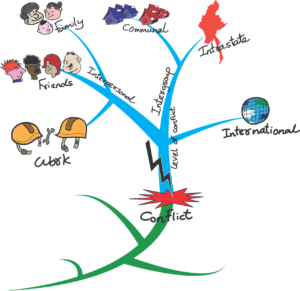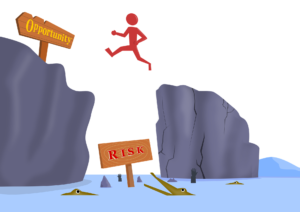Today, let’s talk about something that we all have but rarely see — our blind spots.
Have you ever been cruising down the highway, decided to merge into the other lane, and suddenly swerved back because there was a car next to you that you didn’t see?
That’s always a fun jolt to the heart (for you and the other driver!)
We call that “having someone in our blind spot” because we can’t see them, even though they are there. We also have those pesky blind spots in our personal and professional lives, and they keep us from achieving our goals and having more inner peace.

Those who acknowledge their blind spots can more quickly identify what they are and how to resolve them. Those who do not tend to blame others because of ego or a lack of self-awareness or spend tremendous energy solving the wrong problems while stressing out those around them.
Imagine diligently pouring water into a bucket, day in and day out, trying every possible method to increase the amount of water in your bucket. Yet, the water level drops significantly at the end of each day regardless of how much you’ve added.
You install a fancy new hose, upgrade your faucet, and even perform a rain dance or two. But no matter what you do, the water level in that darn bucket just won’t rise.
Then, a neighbor walks by one day, looks down into your bucket with a magnifying glass, and says, “Hey, did you know there’s a hole in the bottom of your bucket?” Of course, you know how we would reply. “No there isn’t. I checked that already.” And that’s when we finally see the hole.
In life, our blind spots are like holes in the bucket. We can spend endless hours fixing what we think is the problem, only to find out later that we’ve been running fast in the wrong direction.
Then, because of embarrassment, pride, or a high opportunity cost (the bias that we’ve invested too much to stop), many resist, rebel, or shut down rather than view it as an opportunity to advance.
So, how do we find these blind spots before wasting more time, energy, and perhaps our sanity? Here are five ways to identify and resolve your blind spots.
- Phone a Friend (or a Coach): Sometimes, we’re too close to the situation to see what’s glaringly obvious to others. Have you ever had salad stuck in your teeth, and nobody told you? Exactly. Find someone who isn’t afraid to tell you what’s stuck in your metaphorical teeth. Coaches, mentors, or brutally honest friends are gold for this.
- Listen to Feedback (Even When It’s Ouchy): Feedback can be like a porcupine hug — awkward and slightly painful. But it’s also invaluable. When someone points out something you hadn’t noticed, don’t brush it off. Dive in, figure out if there’s a nugget of truth, and use it to patch that hole.
- Self-Reflection (But Not the Endless Loop Kind): Take a step back and look at the big picture. Are you constantly solving the same problem? Maybe the issue isn’t the water but the bucket itself. Reflect on your patterns, but avoid the trap of endless rumination. That’s like using a magnifying glass to find an elephant — unnecessary and exhausting. And drop the self-criticism, too. Blind spots are a part of the human experience, so be kind to yourself, learn from this, and move on.
- Continuous Learning (Without the Overwhelm): Knowledge is power, but only if applied correctly. Stay curious and keep learning, but also be selective. You don’t need a flood of information, just the right information to fix your specific leaky bucket. (i.e., Getting lost in YouTube videos that take you down endless rabbit holes when you can talk to an expert and solve your issue more quickly.)
- Take Action (Yes, You Actually Have to Do Something): Once you’ve identified a potential blind spot, do something about it! Knowledge without action is like having a bucket without water — pretty useless. Recognizing the hole is only step one. You’ve also got to patch it and then watch how much easier it is to fill your bucket.
In conclusion, finding your blind spots is crucial. It’s the difference between spinning your wheels and actually getting somewhere. So, let’s all commit to a bit of honest self-evaluation and a touch of humility.
And maybe, just maybe, we can start laughing at our blind spots and make finding them a fun part of our growth journey.
Have a beautiful day…
🙂 Tim Shurr
P.S. If you need help finding the hole in your bucket (metaphorically speaking), let’s schedule a time to talk…
- For therapists, life coaches, or healers, schedule a Practice Growth Discovery Call here: https://TimShurr.as.me/discoverycall
- *For anyone ready to overcome anxiety, trauma, and bad habits, schedule a free hypnosis telephone consultation here: https://timshurr.as.me/hypnosis




